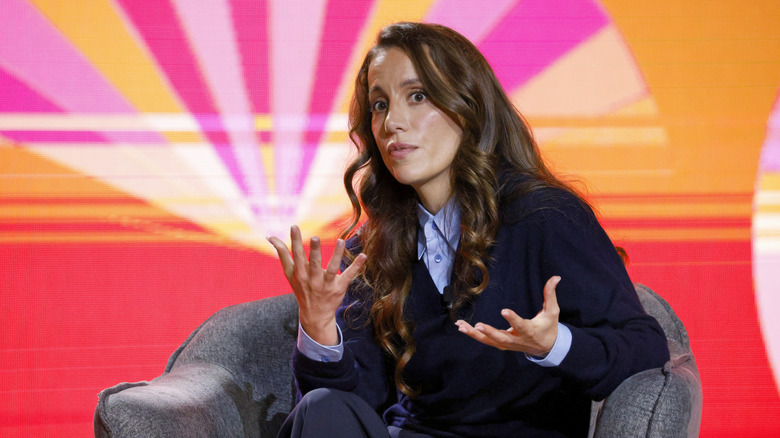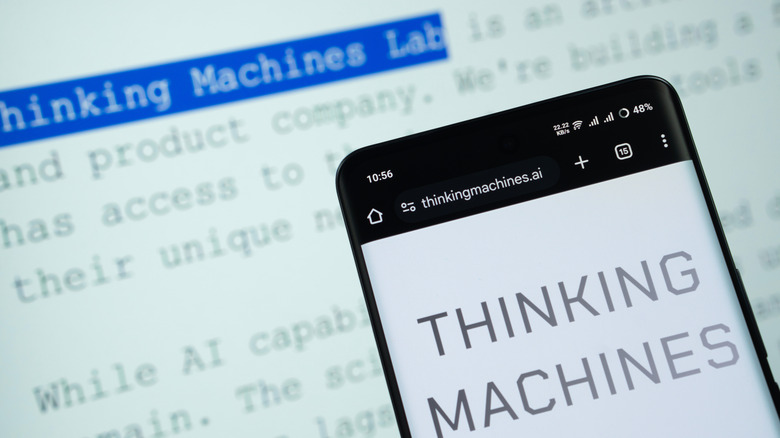Tinker Is Thinking Machines Lab's First AI Product, But It's Not The ChatGPT Rival Some Expected
There's been a lot of excitement about Mira Murati's Thinking Machines Lab (TML) AI startup ever since the former high-ranking OpenAI executive left the company that created the ChatGPT chatbot and spawned the current AI revolution. A year later, Murati's AI firm is ready to release its first, highly anticipated AI product.
Called Tinker, the AI tool requires joining a waitlist as of Wednesday, and it's not the ChatGPT rival some people might have expected from the startup. After all, many firms developing frontier AI models release commercial products targeting regular consumers, especially chatbots. Tinker isn't that kind of product. It's a tool made for a specific audience: AI enthusiasts, companies, researchers, and hackers that want to fine-tune existing open-source AI models to the user's specific interests.
Murati, previously the CTO of OpenAI, was interim CEO during Sam Altman's ouster in the fall of 2023. She left OpenAI last year to form a mysterious startup that eventually became known as Thinking Machines Lab. Murati isn't the only well-known AI researcher at the startup. She cofounded the firm with other OpenAI veterans, hiring additional talent from the ChatGPT developer. TML's notable expertise in AI might be why the company was able to raise $2 billion at a $12 billion valuation this summer, before unveiling a commercial product. Now, Thinking Machine Labs has unveiled Tinker, which is currently available to approved users to build their custom AI models.
What can Tinker do?
According to a Wired report on Wednesday, Tinker is an AI tool that will help anyone customize frontier AI models to meet their own needs. Put differently, Tinker will allow users to train open-source versions of frontier AI models with their own algorithms so the AI can serve a particular purpose. This isn't (just) about making your own version of ChatGPT, though that's a simpler explanation. Tinker would let you fine-tune (train) a Meta or Alibaba model to become an expert in a particular field, whether it's medicine, law, or something even more specific. Interaction with the model would still happen via a chat interface once Tinker training is complete.
Tinker will work with two models initially: a Llama model from Meta and a Qwen model from Alibaba. Wired notes that users will write a few lines of code via the Tinker API and then start training one of the two models. TML explains in a blog post that it will provide the hardware for the fine-tuning process. As for the training itself, Tinker supports two options: supervised learning and reinforcement learning. The latter is increasingly popular, and it involves providing feedback to the AI's responses. Supervised learning refers to feeding specific data to the AI.
How much does Tinker cost?
Once Tinker is done training the AI model, users will be able to download the custom frontier model and run it however they want, on their own hardware. These are the early days of Tinker, as the service is in private beta. While there are no costs involved initially, access isn't open to just anyone. TML has a waitlist and will approve users over time. This vetting can help ensure Tinker isn't abused to create nefarious AI models. Usage-based pricing will follow in the coming weeks.
Also, the focus is on researchers and developers rather than regular users who might want to create their own custom chatbots. The company names a few early Tinker users, including groups at Princeton, Stanford, Berkeley, and Redwood Research. For example, Princeton used the product to train mathematical theorem provers, while Stanford made a model for chemistry reasoning. Those interested in getting started with Tinker can join the waitlist on Thinking Machines Lab's landing page for Tinker.


